7 Maqam Hote H Ishq Mai: A Symphony of Eternal Love
Nidhi | Dec 25, 2024, 13:23 IST
Dedh Isqhqiya
Explore the seven stages of love (7 Maqam Hote H Ishq Mai) as poetically narrated in Dedh Ishqiya by Naseeruddin Shah. Rooted in the timeless elegance of Urdu literature, this article delves into the journey of love through its stages—Dilkashi, Uns, Mohabbat, Aqeeda, Ibadat, Junoon, and Maut—with references to the works of Ghalib and Faiz, blending shayaris, emotions, and the beauty of language.
7 maqam hote hain ishq mai; 7: Dilkashi, Uns, Mohabbat, Aqeeda, Ibadat, Junoon, aur Maut."
These words, immortalized by Naseeruddin Shah in Dedh Ishqiya, echo like a poetic ode to the timeless voyage of love. Rooted in the profound elegance of Urdu, the dialogue reminds us of a language that has always embraced the heart’s most tender desires. From the verses of Mirza Ghalib to the couplets of Faiz Ahmed Faiz, Urdu literature has beautifully painted the myriad shades of ishq—its sweetness, its suffering, and its transcendence.
 As Ghalib wrote,
As Ghalib wrote,
"Ishq par zor nahin, hai yeh woh aatish Ghalib,
Jo lagaye na lage, aur bujhaye na bane."
These seven maqaams—dilkashi, uns, mohabbat, aqeeda, ibadat, junoon, and maut—are not just stages but milestones that guide the heart on its journey toward eternity. Each stage carries the soul deeper into the labyrinth of love, where pain and passion blend seamlessly into poetry. Let us immerse ourselves in this soulful exploration, uncovering the essence of these stages, one heartbeat at a time.
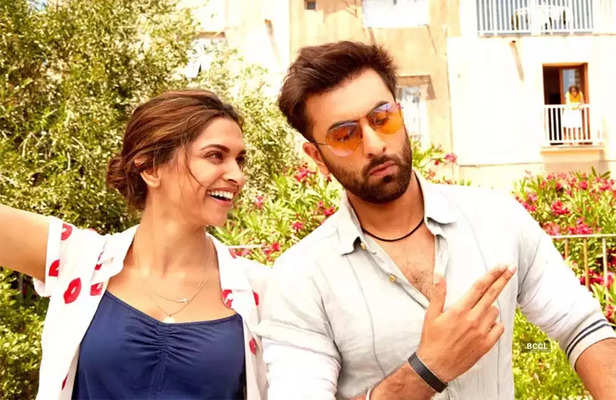
"Jahan bas ek nazar kaafi hai, dil bechain ho jaaye, aur zubaan begaani lage."
Attraction, the first step of ishq, is the glance that stops time, the smile that stirs the soul. It is a fleeting moment, but its impact is profound—a spark that ignites the fire of love.
"Jo tujhe dekhte hi mohabbat ka junoon jag gaya,
Wahi to hai mera shuru, tera khatam hone ka baja."
The beauty of dilkashi lies in its innocence. It is unspoken, unexplained, and unending. Like Khalujaan’s first glimpse of Begum Para, this stage awakens the slumbering heart to the possibility of love.
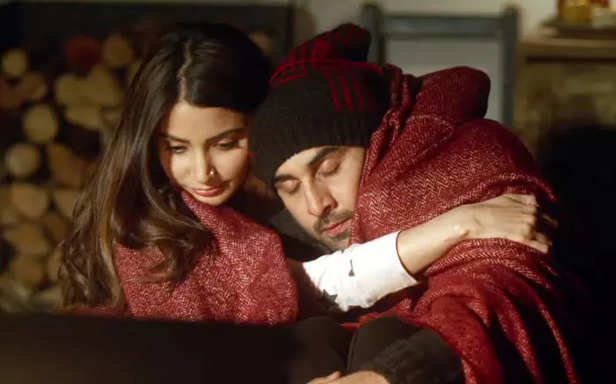
"Dil se dil jab shabdon ke bina baat kare, wahi uns hai."
After the spark of dilkashi, comes uns—the closeness that bridges two hearts. It is the shared silences, the unsaid understanding, the warmth that feels like home.
"Jab teri khamoshi bhi shayari ban jaye,
Aur meri tanhai tera intezaar ban jaye."
In Urdu poetry, uns is a sacred bond, a subtle melody that plays between souls. It is the comfort of knowing that you are seen, heard, and cherished without words.

"Mohabbat wo hai jo dil ko zinda rakhkar mita de."
Mohabbat is where attraction and closeness converge into an all-encompassing love. It is the stage where hearts entwine, where the beloved becomes the very essence of existence.
"Tera zikr hai har ghazal mein mere,
Meri zindagi ka har mausam hai tere."
This stage is marked by passion and purity, the kind of love that transforms the mundane into the magical. It is the poetry of life, where every heartbeat becomes a couplet.
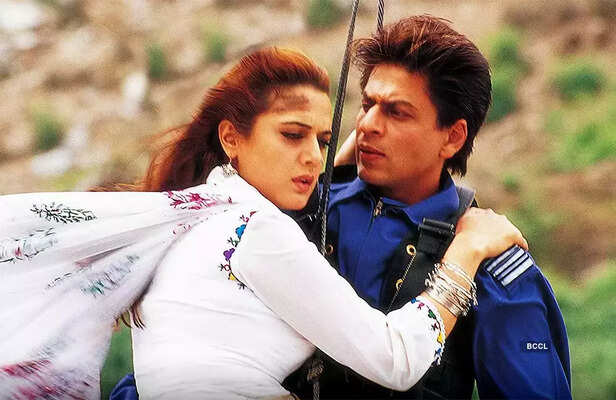
"Jahan bharosa mohabbat ko mazboot banata hai."
In aqeeda, love deepens into faith—a steadfast belief in the beloved and the bond. It is the trust that weathers storms and the certainty that anchors the heart.
"Mohabbat hai ek dua, jisme shart nahi,
Aqeeda hai ek raah, jisme darar nahi."
This stage is about surrendering to love’s truth, a devotion that strengthens the relationship and carries it forward. Faith is the soul’s promise to remain loyal through every twist and turn.
 "Jab ishq ek ibadat ban jaye, wahi ishq ka asal hai."
"Jab ishq ek ibadat ban jaye, wahi ishq ka asal hai."
Ibadat elevates love to the divine. It is no longer just about two individuals; it becomes a form of spiritual reverence, a worship of the soul that unites lovers with the universe.
"Tujhse mohabbat meri ibadat ban gayi,
Teri tasveer meri masjid ban gayi."
This stage sees love transcend the earthly, turning into a sacred ritual where every breath, every thought is a prayer for the beloved.
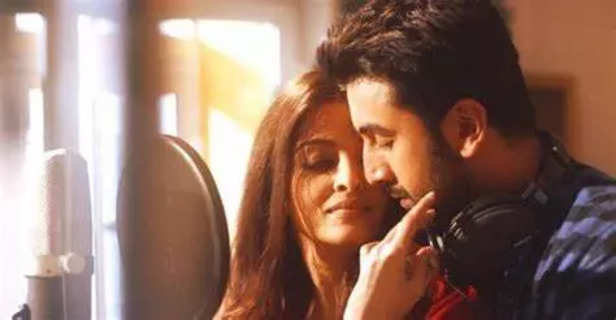
"Jahan ishq deewangi ban jaye, aur har cheez se upar ho."
Junoon is where love blazes into obsession. It is raw, unfiltered, and consuming—a fire that burns everything in its path. It is passion unbound, a wild dance of emotions.
"Tujhmein khud ko bhool gaya,
Junoon mein tujhmein doob gaya."
In Dedh Ishqiya, Khalujaan’s desperation for Begum Para’s love captures the madness of junoon. It is the stage where love reaches its boiling point, testing the very limits of the heart.
7. Maut (Death): The Ultimate Union
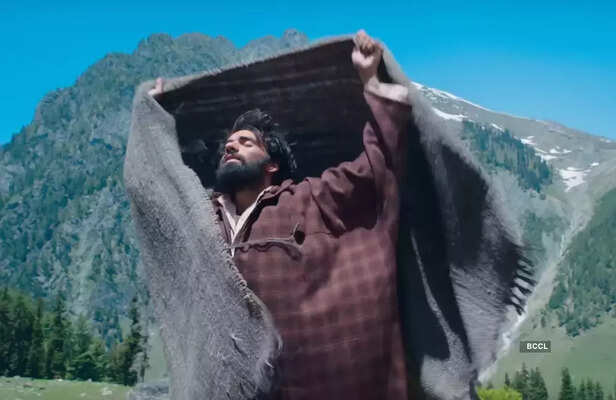
"Ishq ka anjaam hai maut, magar yeh ek nayi shuruaat bhi hai."
Maut, the final maqaam, is not an end but a culmination—a merging of souls that transcends life. It is the death of the self, where love achieves immortality.
"Teri mohabbat mein mita,
Aur isi mitaane mein zinda raha."
Urdu poetry often romanticizes maut as the ultimate union of the lover and the beloved. It is the stage where love lives on, even after life itself ends.
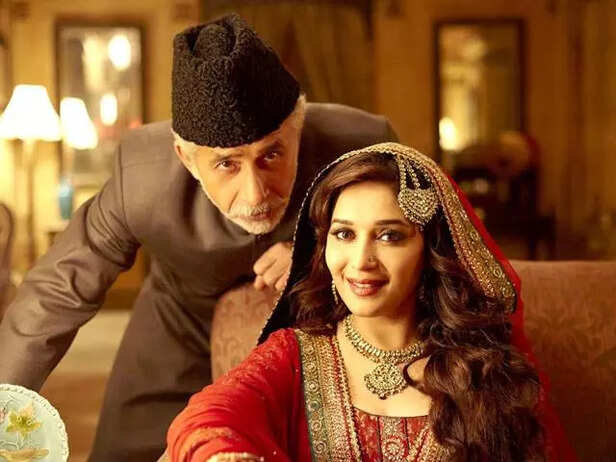
These seven stages—dilkashi, uns, mohabbat, aqeeda, ibadat, junoon, and maut—compose the symphony of ishq. Naseeruddin Shah’s dialogue in Dedh Ishqiya is not just a poetic musing but a testament to the timeless nature of love. Each maqaam is a note in the melody of the heart, resonating with the rhythm of life.
"Ishq ek safar hai, jisme har mod ek ghazal hai,
Jisme har saans ek shayari hai."
As we navigate these stages in our own lives, may we cherish the beauty of ishq—its joys, its sorrows, its madness, and its serenity. For love, in all its forms, is the essence of existence, the poetry of the soul.
These words, immortalized by Naseeruddin Shah in Dedh Ishqiya, echo like a poetic ode to the timeless voyage of love. Rooted in the profound elegance of Urdu, the dialogue reminds us of a language that has always embraced the heart’s most tender desires. From the verses of Mirza Ghalib to the couplets of Faiz Ahmed Faiz, Urdu literature has beautifully painted the myriad shades of ishq—its sweetness, its suffering, and its transcendence.

Mirza Ghalib
"Ishq par zor nahin, hai yeh woh aatish Ghalib,
Jo lagaye na lage, aur bujhaye na bane."
These seven maqaams—dilkashi, uns, mohabbat, aqeeda, ibadat, junoon, and maut—are not just stages but milestones that guide the heart on its journey toward eternity. Each stage carries the soul deeper into the labyrinth of love, where pain and passion blend seamlessly into poetry. Let us immerse ourselves in this soulful exploration, uncovering the essence of these stages, one heartbeat at a time.
1. Dilkashi (Attraction): The Spark That Beckons

Dilkashi
"Jahan bas ek nazar kaafi hai, dil bechain ho jaaye, aur zubaan begaani lage."
Attraction, the first step of ishq, is the glance that stops time, the smile that stirs the soul. It is a fleeting moment, but its impact is profound—a spark that ignites the fire of love.
"Jo tujhe dekhte hi mohabbat ka junoon jag gaya,
Wahi to hai mera shuru, tera khatam hone ka baja."
The beauty of dilkashi lies in its innocence. It is unspoken, unexplained, and unending. Like Khalujaan’s first glimpse of Begum Para, this stage awakens the slumbering heart to the possibility of love.
2. Uns (Closeness): The Gentle Harmony

Uns
"Dil se dil jab shabdon ke bina baat kare, wahi uns hai."
After the spark of dilkashi, comes uns—the closeness that bridges two hearts. It is the shared silences, the unsaid understanding, the warmth that feels like home.
"Jab teri khamoshi bhi shayari ban jaye,
Aur meri tanhai tera intezaar ban jaye."
In Urdu poetry, uns is a sacred bond, a subtle melody that plays between souls. It is the comfort of knowing that you are seen, heard, and cherished without words.
3. Mohabbat (Love): The Eternal Flame

Mohabbat
"Mohabbat wo hai jo dil ko zinda rakhkar mita de."
Mohabbat is where attraction and closeness converge into an all-encompassing love. It is the stage where hearts entwine, where the beloved becomes the very essence of existence.
"Tera zikr hai har ghazal mein mere,
Meri zindagi ka har mausam hai tere."
This stage is marked by passion and purity, the kind of love that transforms the mundane into the magical. It is the poetry of life, where every heartbeat becomes a couplet.
4. Aqeeda (Faith): The Unshakable Foundation

Faith
"Jahan bharosa mohabbat ko mazboot banata hai."
In aqeeda, love deepens into faith—a steadfast belief in the beloved and the bond. It is the trust that weathers storms and the certainty that anchors the heart.
"Mohabbat hai ek dua, jisme shart nahi,
Aqeeda hai ek raah, jisme darar nahi."
This stage is about surrendering to love’s truth, a devotion that strengthens the relationship and carries it forward. Faith is the soul’s promise to remain loyal through every twist and turn.
5. Ibadat (Worship): The Sacred Devotion

Veer Zara
Ibadat elevates love to the divine. It is no longer just about two individuals; it becomes a form of spiritual reverence, a worship of the soul that unites lovers with the universe.
"Tujhse mohabbat meri ibadat ban gayi,
Teri tasveer meri masjid ban gayi."
This stage sees love transcend the earthly, turning into a sacred ritual where every breath, every thought is a prayer for the beloved.
6. Junoon (Obsession): The Fiery Tempest

Junoon
"Jahan ishq deewangi ban jaye, aur har cheez se upar ho."
Junoon is where love blazes into obsession. It is raw, unfiltered, and consuming—a fire that burns everything in its path. It is passion unbound, a wild dance of emotions.
"Tujhmein khud ko bhool gaya,
Junoon mein tujhmein doob gaya."
In Dedh Ishqiya, Khalujaan’s desperation for Begum Para’s love captures the madness of junoon. It is the stage where love reaches its boiling point, testing the very limits of the heart.
7. Maut (Death): The Ultimate Union

Maut
"Ishq ka anjaam hai maut, magar yeh ek nayi shuruaat bhi hai."
Maut, the final maqaam, is not an end but a culmination—a merging of souls that transcends life. It is the death of the self, where love achieves immortality.
"Teri mohabbat mein mita,
Aur isi mitaane mein zinda raha."
Urdu poetry often romanticizes maut as the ultimate union of the lover and the beloved. It is the stage where love lives on, even after life itself ends.
The Seven Maqams: A Symphony Eternal

Seven Stages of Love
These seven stages—dilkashi, uns, mohabbat, aqeeda, ibadat, junoon, and maut—compose the symphony of ishq. Naseeruddin Shah’s dialogue in Dedh Ishqiya is not just a poetic musing but a testament to the timeless nature of love. Each maqaam is a note in the melody of the heart, resonating with the rhythm of life.
"Ishq ek safar hai, jisme har mod ek ghazal hai,
Jisme har saans ek shayari hai."
As we navigate these stages in our own lives, may we cherish the beauty of ishq—its joys, its sorrows, its madness, and its serenity. For love, in all its forms, is the essence of existence, the poetry of the soul.
